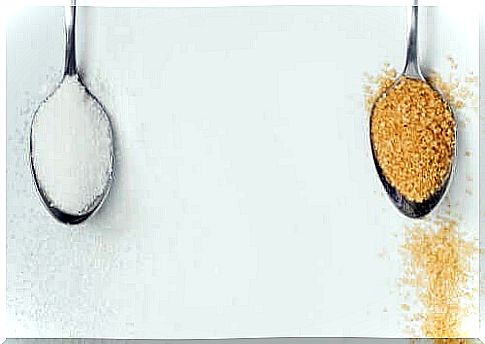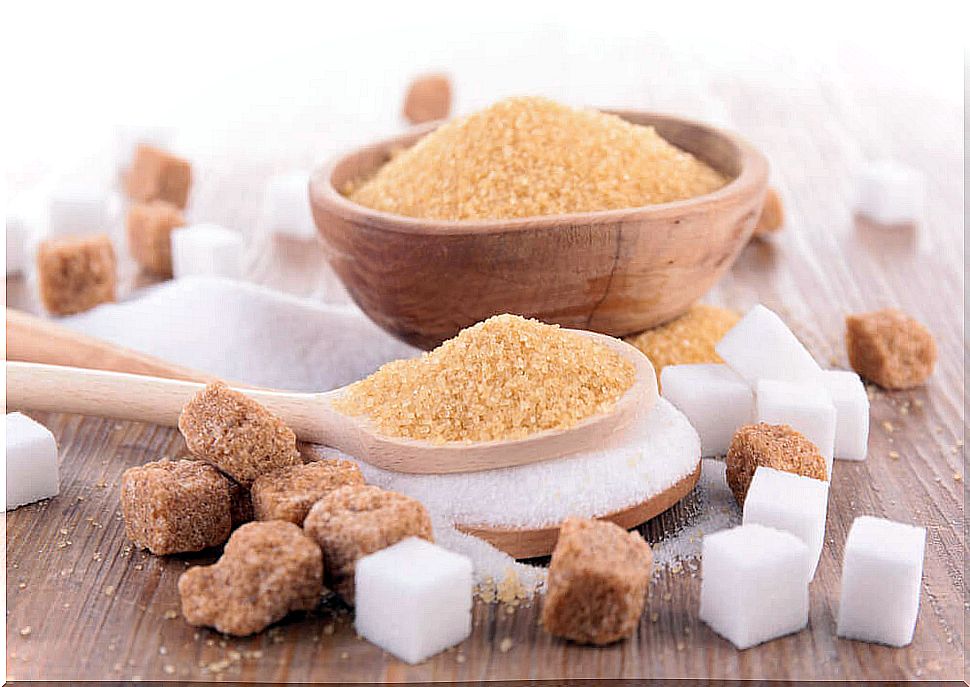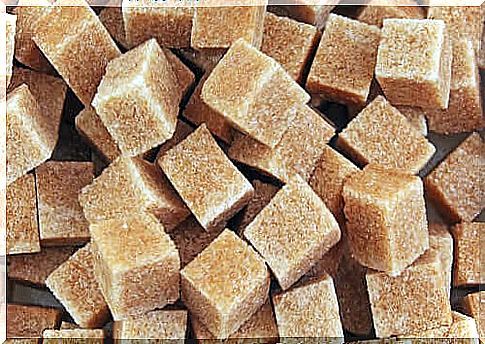Is Brown Sugar Really Better For Your Health Than White Sugar?
Find out here why brown sugar and white sugar are virtually identical and what the real impact of these sugars is on human health.

In recent years, white sugar has been replaced by other substances apparently better for health. Brown sugar is one of these substances. But over time, doubts have arisen that brown sugar is better for you than white sugar.
Brown sugar is actually quite similar to standard sugar, just slightly less processed. It retains almost all the properties of standard table sugar, so it has a similar health impact. Therefore, it does not improve the benefits of white sugar at all. It is also not harmless to health.
Sure, brown sugar has slightly more fiber than white sugar, but that doesn’t make it any better. Compared to other foods, its amount of fiber is insignificant. Moreover, its glycemic index and its pancreatic response following its ingestion is totally similar to those of white sugar.
Sugar in the food industry
Sugar is one of the most widely used products in the food industry. It has antimicrobial properties, which is why it promotes food preservation. It also improves the organoleptic properties and thus makes the food more attractive.
However, this food product is also linked to the onset of many complex diseases such as diabetes and cancer. In recent years, the World Health Organization (WHO) has invited us to limit our consumption of sugar in order to reduce the rate of obesity.
The main problem with the constant addition of sugar is the addiction that this addition causes. While it should be a food reserved for athletes, sugar is a substance that everyone consumes.

White sugar or brown sugar, it’s sugar
After the awareness campaign carried out to make us reduce our sugar consumption, we are now faced with varieties of sugar with different names, which, in reality, have the same characteristics as white sugar. . Brown sugar, honey, coconut sugar or even panela are all products composed mainly of sugar.
No matter how much marketing tries to present us with a different reality, the systemic effect of all of these products is similar to that of white sugar. Reducing your consumption of these foods is therefore also a good thing.
On the other hand, it is good to increase your intake of low glycemic index carbohydrates and intake of foods high in fiber, which promote good gut health. Increasing your consumption of essential fats is also a good idea, but while remaining within the framework of a normal calorie diet.
Using artificial sweeteners can be a good strategy to reduce your sugar intake, as long as you don’t overdo it. These products are usually tested in the lab, but long-term side effects are not known.
Fasting to repair sugar damage
Intermittent fasting is a popular strategy to lose weight and prevent the onset of diabetes. If we react in time, we can repair our insulin resistance, a damage caused by high sugar consumption.
Currently, the most widely followed intermittent fasting protocol for convenience is the 16: 8 protocol. This protocol consists of spending 16 hours on an empty stomach, i.e. 16 hours without ingesting caloric foods. During this period, the AMPK pathway of metabolism is activated, which takes care of catabolic processes and the production of energy from fat burning.
Intermittent fasting is also a good way to lose weight, as the amount of calories eaten per week decreases dramatically. Skipping breakfast is generally an effective way to track intermittent fasting, especially since it is during breakfast that we tend to consume the most sugary, processed, and low-quality foods.

So… is brown sugar better for your health than white sugar?
The food industry may give it several names and offer it in different presentations, the quality of the sugar does not vary. Brown sugar is very similar to white sugar in almost every way. Therefore, brown sugar is also a food that should not be consumed in excess. Rational consumption helps prevent obesity-related problems and the onset of complex diseases.
Replacing sugar with artificial sweeteners can be an interesting strategy, as long as you don’t overuse these products either. Following the protocol of intermittent fasting by skipping breakfast is another interesting strategy, especially since breakfast is a meal in which we tend to consume sugar.









